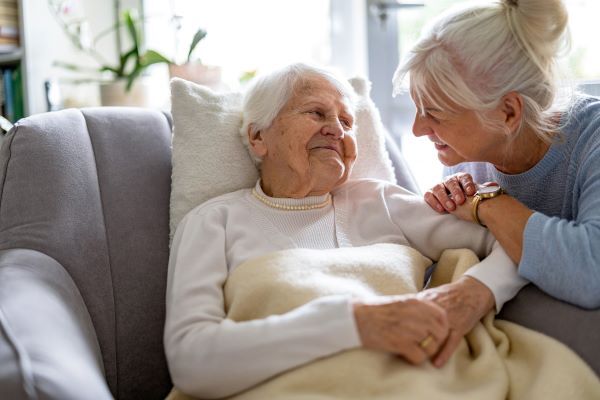Working towards better resident outcomes
In an aged care home setting, aged care providers must consider a variety of factors to ensure that residents are living their best lives. Of course, personal care is a top priority, but it's equally important to prioritise physical and mental wellbeing. It's also essential to consider each resident's unique needs and preferences and provide a diverse range of activities to cater to those needs.
One of the best ways for aged care providers to meet these needs is by engaging the residents in a variety of activities that are crucial to their social, physical, and emotional wellbeing. A well-rounded range of fun and stimulating activities can substantially enhance residents' overall quality of life, improving wellbeing and helping to give a sense of purpose, structure and routine to their daily lives, ultimately contributing to a more satisfying and fulfilling day.
Maintaining Personal Identity
In aged care homes where person-centred care is implemented, residents report greater satisfaction and quality of life. Care providers must personalise their approach to care according to residents' unique needs and preferences and ensure that everyone feels valued and respected; maintaining a resident's preferred lifestyle and independence wherever possible is crucial, as well as encouraging individuals to express themselves and to change their minds about things when they want to.
Care staff can help maintain a resident's identity by working in partnership with the person to:
- Find out what's important to them, from their wishes and needs, interests and hobbies to views and beliefs, as well as learning about their history; by understanding these aspects, you can create a tailored approach that meets their unique requirements and promotes overall wellbeing.
- Ensure they have the freedom to choose their preferred clothing for the day and seating arrangements during mealtimes and that their most cherished and valued possessions are kept nearby to ensure comfort and ease. By allowing individuals to have control over these aspects, you can promote a sense of independence and dignity while fostering a welcoming and inclusive environment.
- Assist and support them in making decisions for themselves.
- Encourage them to maintain their current relationships and develop new ones.
Health and Mental Wellbeing
To maintain and enhance residents' overall wellbeing and happiness, care staff must receive adequate training and support in order to deliver expert wellbeing care, exercise, and activities for residents.
Sensory impairment
The loss of sight and hearing can be extremely disabling and can have devastating effects, but it's often considered a normal part of ageing and may not be recognised straightway. These impairments can greatly impact an individual's ability to communicate, feel confident, and maintain independence. It is crucial to offer assistance and support to prevent the person from becoming isolated.
Care staff must ensure the following:
- Be aware of all the different visual and auditory impairment types and how they can impact people.
- Provide guidance and help residents to maintain their visual and auditory health, keeping on top of regular optician appointments and hearing tests, keeping their glasses clean and assisting them in changing their hearing aid batteries.
Physical difficulties
Physical conditions can lead to discomfort and hinder an individual's ability to carry out daily tasks, participate in care home activities, and maintain independence, adversely affecting the resident's mental wellbeing.
It's important for care staff to be on the lookout for any physical difficulties residents might be having, such as:
- Pain in the joints or muscles or unexplained pain.
- Difficulty walking steadily.
- Constipation.
- Incontinence.
- Dizziness.
- Urinary tract infections.
- Having trouble with mobility.
Mental health conditions
Maintaining good mental health is essential for residents to experience a sense of enjoyment and fulfilment in life. It's important to note that older adults in care homes may have one or more mental health conditions, such as depression or generalised anxiety disorder, that often go unnoticed, undiagnosed, and untreated. It's essential for care staff to remain vigilant and receive the necessary training and support to recognise the signs and symptoms of residents developing or having these conditions.
To ensure proper care, care staff should directly ask residents questions about their mental health, such as:
- Have you felt nervous, anxious, or excessively worried in the past couple of weeks, and how often have you been feeling like this?
- Have you been experiencing symptoms of depression, general sadness, or lack of interest in activities and doing the things you usually enjoy?
The Importance of Meaningful Activities
Giving residents a choice of a range of activities that provide motivation and serve as a source of inspiration, enabling them to acquire new skills while enhancing their autonomy, can significantly enhance their overall happiness and contentment with life.
Care staff should encourage residents to consider the following:
- Participate in a variety of structured and spontaneous activities, alone or in groups or with family and friends.
- Engage in physical, social, and leisure activities and activities of daily living (ADLs)
- Take positive risks, such as learning a new skill or socialising with others to reach personal goals - taking risks is an important part of everyday life and enables residents to have more control and choice over their lives.
- Connect with like-minded people in the community and join social activity groups.
- Seek out activities that provide emotional, creative, intellectual and spiritual stimulation.
It's important to consider a resident's individual needs when discussing activities; for example, if the resident has a learning disability, they will have individual strengths and abilities, which should be recognised by the care staff, along with meeting any identified support needs. Other examples could be a cognitive impairment, a communication barrier, or cultural differences.
Wellbeing & Activity Solutions
We know that planning activities can sometimes be challenging, particularly when trying to cater to the unique needs of each individual within the home. Additionally, we recognise the significance of training and upskilling care staff; that's why Person Centred Software has developed a wellbeing and activity solutions for residents and staff, from training and supporting care teams to providing awesome exercise classes and wellbeing activities.
Activities should be an integral part of your resident's care plans, with a wide variety of options available.
Bringing interaction, fun, laughter and learning into homes, our wellbeing and activity solutions, created specifically for the social care sector and by experts in wellbeing, mental health, dementia, and nutrition, give care home residents and staff access to specialist activity programmes, wellbeing programmes and content tailored to residents' specific needs and requirements, 24-7.












